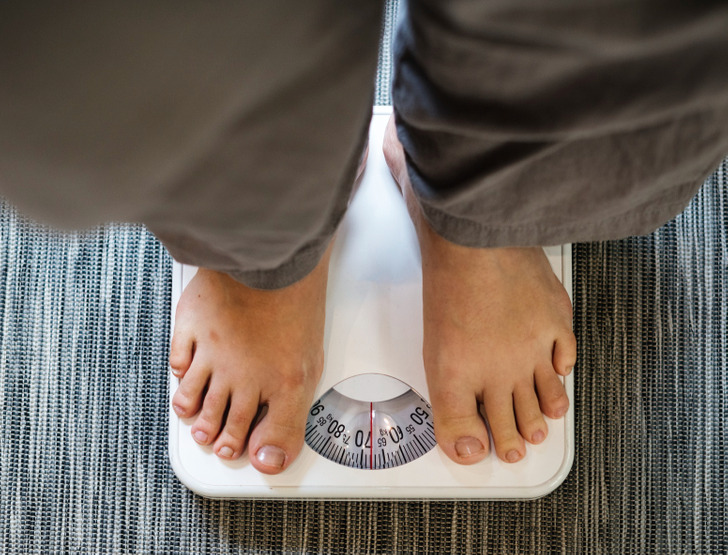Hormones are essential for regulating numerous bodily functions, such as metabolism, mood, and reproductive health. However, even minor hormonal fluctuations can cause noticeable changes in the body. Studies indicate that up to 80% of women experience hormonal imbalances at some stage in their lives, which can significantly affect their overall well-being.
Content is provided for informational purposes only and is not a substitute for professional medical advice. Always consult your doctor for guidance regarding your health and medical conditions.
1. Unexplained Weight Gain or Loss

Sudden weight changes, even without significant changes in diet or exercise, can indicate a hormonal imbalance. Elevated cortisol levels due to chronic stress may contribute to weight gain, while thyroid dysfunction can result in either weight gain or loss.
2. Persistent Fatigue

Feeling persistently exhausted, despite getting a full night’s sleep, could be a sign of a hormonal imbalance. Low thyroid hormone levels may slow metabolism, causing fatigue, while fluctuations in estrogen and progesterone levels can also contribute to ongoing tiredness.
3. Irregular Menstrual Cycles
A menstrual cycle that is consistently shorter, longer, or absent altogether may indicate an imbalance in estrogen and progesterone. Polycystic ovary syndrome (PCOS), a common endocrine disorder affecting 1 in 10 women, is a leading cause of irregular periods.
4. Skin Issues and Hormonal Acne

Acne breakouts, particularly around the jawline, chin, and neck, as well as skin tags, can be associated with hormonal imbalances. Elevated androgen levels may increase oil production in the skin, leading to clogged pores and persistent acne. Research shows that women with PCOS often have higher-than-normal androgen levels.
.

© Grook Da Oger / Wikimedia Commons, © CC BY-SA 3.0
5. Mood Swings and Depression
Frequent mood swings, anxiety, or depressive episodes can be tied to fluctuating hormone levels. Estrogen plays a key role in serotonin production, the hormone responsible for mood regulation. A drop in estrogen, such as during menopause or perimenopause, can lead to heightened feelings of sadness or irritability.
6. Sleep Disturbances

Hormonal imbalances can greatly disrupt sleep patterns. Low progesterone levels are often associated with insomnia, while elevated cortisol levels caused by stress can make it challenging to fall or stay asleep.
7. Digestive Issues
Bloating, constipation, and diarrhea can sometimes be linked to hormonal changes. The gut is highly responsive to estrogen and progesterone levels, which play a role in regulating digestion. An imbalance in these hormones can either slow down or speed up the digestive process, leading to discomfort.
8. Increased Facial Hair and Strawberry Skin

Excess facial hair growth, especially on the chin and upper lip, can indicate elevated androgen levels, often linked to conditions like PCOS. High androgen levels may also lead to “strawberry skin,” a term used to describe enlarged pores or keratosis pilaris, which causes rough, bumpy skin, particularly on the arms and legs.
Diagnosing Hormonal Imbalances: What to Expect
If you suspect a hormonal imbalance, a healthcare provider may suggest blood tests to evaluate hormone levels, including thyroid hormones, cortisol, estrogen, and progesterone.
If symptoms persist or significantly affect your daily life, it’s important to consult a healthcare provider. Early diagnosis and treatment can help prevent complications related to hormonal imbalances, such as infertility, metabolic disorders, or chronic fatigue.
Effective Treatments for Hormonal Imbalance

Hormone therapy is a common treatment for significant hormonal imbalances. However, natural approaches like lifestyle changes, dietary adjustments, and stress management techniques can also support hormonal health. Certain foods, such as leafy greens, nuts, and lean proteins, can help naturally balance estrogen levels.
Adopting a healthy lifestyle plays a key role in regulating hormones. Prioritizing quality sleep, engaging in regular physical activity, and incorporating hormone-balancing foods into your diet can contribute to maintaining hormonal equilibrium.
Preventing Hormonal Imbalances: Tips and Strategies
Prevention focuses on maintaining a balanced diet, managing stress, and staying physically active. Reducing sugar intake and practicing mindfulness techniques can help stabilize hormone levels. Regular exercise, such as strength training and yoga, aids in regulating insulin and cortisol levels. A diet rich in antioxidants, fiber, and essential vitamins supports overall endocrine health.
Chronic stress can lead to prolonged elevation of cortisol, which may disrupt other hormones. Incorporating relaxation techniques like meditation, deep breathing, and journaling can help maintain a balanced hormonal state.
Check out 10 indoor plants that can supercharge your health.






